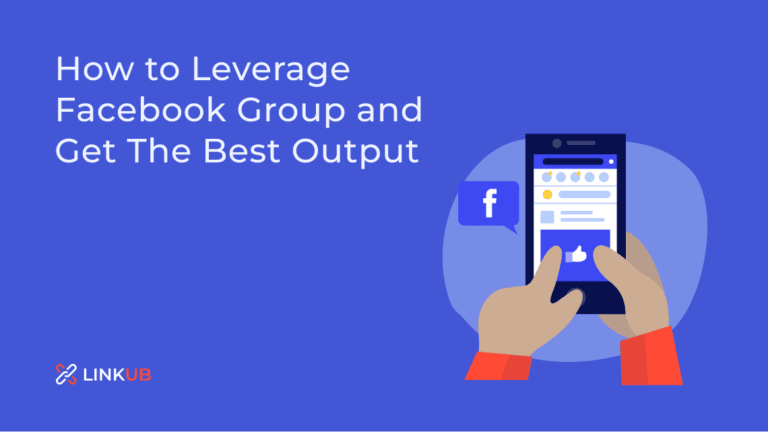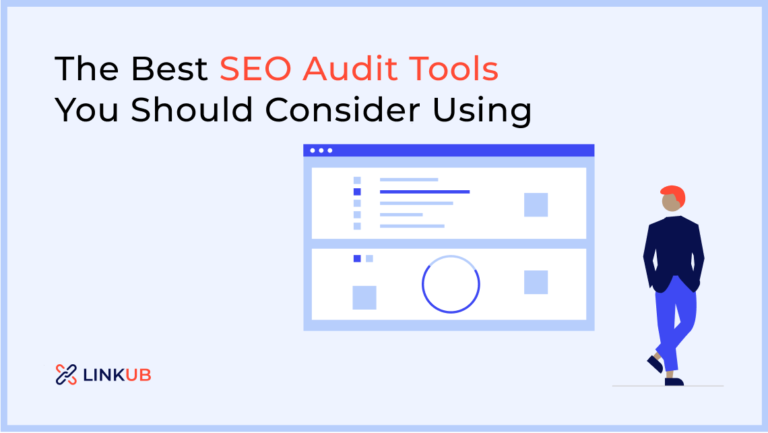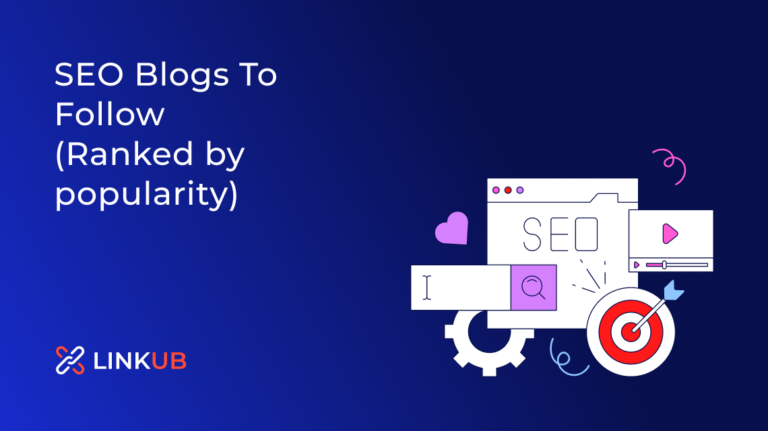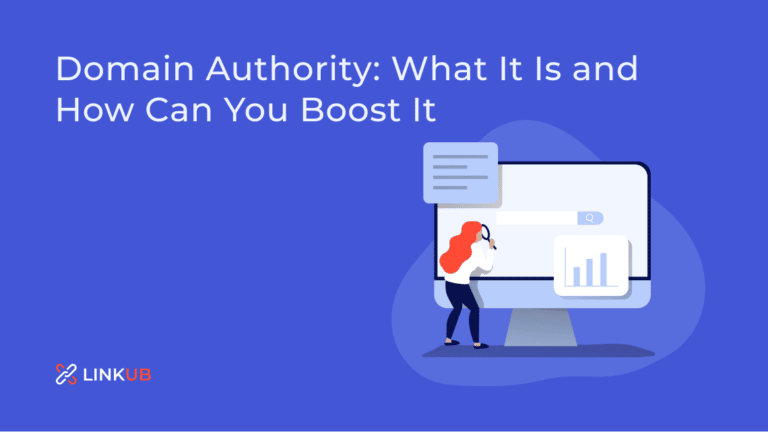A Startup Company’s Guide to B2B SEO
To compete in the modern business landscape, startups must use search engine optimization (SEO) tactics. By optimizing their website and content for search engines, startups can increase their visibility and reach new customers.
However, SEO is an ever-changing field, and what worked a few years ago may not work today. The other side of the coin is that while SEO, in a broad sense, can be an effective marketing strategy, how it applies specifically to business-to-business (B2B) companies may be different than for business-to-consumer (B2C) companies.
What Exactly Is B2B SEO, and Why Is It Different?

B2B SEO is the process of optimizing a website to rank higher in search engine results pages (SERPs) for keywords related to the products or services that the business offers. The goal of B2B SEO is to attract qualified leads to the website and ultimately convert them into customers.
Because B2B companies are selling their products or services to other businesses rather than individual consumers, there are a few key ways in which B2B SEO differs from B2C SEO:
1. The Buyer’s Journey Is Longer and More Complex
The typical buyer’s journey for a B2B product or service is much longer and more complex than for a B2C product. This is because multiple decision-makers are usually involved in the purchasing process, and each may have different needs and concerns.
To account for this, B2B SEO must be geared towards attracting leads at all stages of the buyer’s journey, from awareness to consideration to decision. This means creating content that addresses the needs of leads at each step of the journey and optimizing it for the relevant keywords.
2. Keywords Are More Specific and Targeted
Since the buyer’s journey is longer and more complex, B2B keywords are usually much more specific and targeted than B2C. For example, a B2B company that sells software to help businesses track their inventory might target the keyword “inventory management software” rather than just “software.”
A proper understanding of the buyer’s journey can make it easier to find the right keywords to target. That’s why it’s essential to create buyer personas — fictional representations of your ideal customer — which can help you understand what kind of content and keywords they are interested in at each stage of the journey.
3. The Competition Is Fiercer
Since B2B companies are selling to other businesses, they often compete with larger, well-established companies that have been around for years. This can make it difficult to rank high in SERPs, especially for competitive keywords. Budgets for SEO may also be smaller for B2B startups, making it even more important to use targeted and effective strategies when competing against larger companies.
To overcome this, B2B companies need to focus on creating high-quality content that is relevant and engaging, as well as optimizing their website for each relevant keyword. They should also consider building backlinks — links from other websites to their own — to help increase their website’s authority and improve their SEO.
4. The Sales Cycle Is Longer

Another way B2B SEO differs from B2C SEO is that the sales cycle — the process a lead goes through, from becoming aware of your product to making a purchase — is usually much longer. This is because B2B purchases are generally more expensive and complex than B2C purchases and involve multiple decision-makers. You’re not selling a product once to an impulsive consumer but multiple times with multiple teams, all with different motivations and pain points.
To account for this, B2B companies must be patient regarding SEO and lead generation. It can take months — or even years — for a lead to go through the entire sales cycle and become a customer. Therefore, B2B SEO must be geared towards attracting and nurturing leads over the long term rather than trying to close deals as quickly as possible.
Knowing that B2B SEO is a long-term game can help companies set realistic expectations and avoid getting discouraged when they don’t see immediate results.
How To Get Started With B2B SEO?
For companies that are just starting with B2B SEO, businesses should include some core elements in any successful strategy.
Develop Your Buyer Personas

Buyer personas are a vital part of any B2B SEO strategy. As mentioned earlier, they are fictional representations of your ideal customer and can help you understand what kind of content and keywords they are interested in.
Creating buyer personas can be complex, and businesses can use various methods. However, business owners should answer some critical questions for each persona, such as:
- Who are they? (e.g. job title, age, gender)
- What are their goals?
- What are their challenges?
- What type of content do they consume? (e.g., blog posts, infographics, videos)
- What keywords are they searching for?
- What products have they used before?
- What channels do they use?
- What are the determinant factors they value in choosing a product?
Answering these questions can help you get inside the mind of your ideal customer and understand what they are looking for at each stage of the buyer’s journey. This, in turn, will allow you to create content that is relevant and engaging and optimize it for the right keywords.
Know Your Sales Funnel
Another critical element of any B2B SEO strategy is understanding your sales funnel. The sales funnel the process that a lead goes through, from becoming aware of your product to making a purchase.
Most B2B purchases are complex and involve multiple decision-makers, so the sales cycle is usually longer than for B2C purchases. As such, it’s essential to clearly understand your sales funnel so that you can create relevant content at each stage.
A typical B2B sales funnel has four stages:
- Awareness: The lead becomes aware of the problem they need to solve and starts researching potential solutions.
- Consideration: The lead narrows down their options and starts considering which product or service is right for them.
- Decision: The lead makes a decision and chooses a supplier.
- Purchase: The lead becomes a customer and makes a purchase.
Understanding your sales funnel is vital to any B2B SEO strategy and is often the bridge between the content you create and the new business you convert.
Create Relevant Content

Creating content is one of the most important aspects of any B2B SEO strategy. Creating relevant, targeted content is vital to attracting and engaging your target audience.
When creating content, it’s important to remember the different stages of the buyer’s journey. Awareness–stage content should be educational and informative, while consideration-stage content should be more product-focused. Decision-stage content should be focused on helping the lead choose your product, and purchase-stage content should be aimed at post-purchase loyalty and retention.
It’s also important to ensure that your content is optimized for the right keywords. Keyword research can help you identify the right keywords to target, and various tools can be used. Once you’ve identified the right keywords, you must ensure they are naturally used throughout your content.
Promote Your Brand In The Right Places
It’s vital to ensure that your brand is being promoted in the right places. This means having a presence on the right social media channels and directories and engaging in relevant industry conversations.
It can also be beneficial to guest post on other websites and collaborate with influencers in your industry. These activities can help increase your brand’s visibility, build links, and generate traffic to your website. However, it’s crucial to only guest post on high-quality websites and collaborates with influencers with a good reputation.
Current or potential customers should also see positive reviews when they locate your business in directories. Online reviews can be very influential and can help build trust and credibility. To encourage customers to leave reviews, you can send follow-up emails after a purchase or include links to review sites on your website.
Measure Your Results
Last but not least, it’s essential to measure your results. This will allow you to see what’s working and what isn’t and make necessary changes to your strategy.
You can track various metrics, but the most important ones include website traffic, organic search traffic, conversion rate, and ROI.
It’s also essential to track your SEO rankings. You can use various tools, such as Google Search Console and Moz Pro. When tracking your rankings, it’s important to identify your target keywords and track your progress over time. By regularly monitoring your SEO rankings, you can track how well your B2B SEO strategy works and identify new threats and opportunities to your business.
Launch a Successful B2B SEO Campaign Today
SEO can be tricky to master — especially if you’re new to the game. Nevertheless, by taking specific and deliberate measures, your business’ success is practically guaranteed. Elements such as buyer journey awareness, keyword research, content optimization, backlink building, and progress assessment over time are all integral parts of a top-tier B2B SEO strategy. Implementing even a few of these tips can help give your business the boost it needs in today’s competitive online landscape.
Further reading





